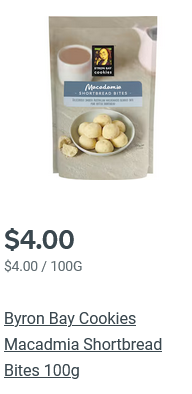‘Abuse of power’: Government investigates soaring grocery prices
By
Seia Ibanez
- Replies 31
Australia's supermarket giants are under the microscope as the Albanese government takes aim at the escalating cost of living crisis.
The government focuses on the high grocery prices that have been a thorn in the side of Australian consumers, particularly seniors who are on fixed incomes.
Prime Minister Anthony Albanese has confirmed that former Labor MP Craig Emerson will spearhead a review of the Food and Grocery Code of Conduct.
'We find it completely unacceptable...when supermarkets are getting goods cheaper, then the prices should go down,' Albanese said.

'When that doesn't happen, then there's something wrong in the system—that's an abuse of market power.'
This statement came in the wake of rising tensions between producers and supermarkets.
Producers alleged that supermarkets charged customers exorbitantly more than what they pay farmers, creating a significant disparity in the value chain.
In one story, a Cape York Peninsula producer refused to do business with Coles and Woolworths, saying supermarkets are ‘holding down’ wholesale prices.
‘Coles and Woolworths send their staff around [to each others' stores] with a little notepad to make note of prices,’ Melon farmer Shaun Jackson said.
'They're manipulating the market. When you own 76 per cent of the food supply, it's a perfect excuse.'
Ross Marsolino, a 61-year-old farmer from Shepparton who recently had to abandon his 80-acre zucchini crop, also shared his sentiment.
He criticised the supermarket giants for their high prices, which he believed were diminishing demand for his produce and making it nearly impossible for him to profit.
‘We're controlled by what the retail sector sells our product at, that determines whether we keep selling the product or not,' he complained.
'This is what is concerning to me; we should be able to service the country with all our produce that we have here. Farmers are just trying to pay their bills.’
Farmers across Australia are malcontent, accusing Australia’s supermarket giants of exploiting them through price gouging.
The situation has become so dire that some farmers are threatening to close their shops and stop supplying supermarkets altogether. Read more about this story here.
The review will delve into whether a revamp of the supermarket industry code is necessary to improve the conduct of retailers and wholesalers towards their suppliers.
The government is prepared to take further action based on the review's recommendations, signalling a potential shake-up in the supermarket industry.
'We want to see supermarkets do the right thing by their customer,' Albanese said.
The Food and Grocery Code of Conduct, which was announced for review in October, regulates how ALDI, Coles, Woolworths, and IGA operator Metcash deal with suppliers and customers.
This voluntary code covers aspects such as good faith dealings, dispute resolution, and prohibiting certain types of conduct. For instance, it prohibits retailers and wholesalers from varying supply agreements retrospectively. It also requires them to act lawfully and in good faith.
The government is considering a shift from industry-led codes of conduct and consumer function to mandating requirements and consumer complaints handling.
The review will also examine strengthening consumer rights in circumstances where a lack of market competition results in price gouging and unacceptable service standards.
 What are your thoughts on the high cost of groceries? Have you noticed a significant increase in prices? Share your experiences in the comments below.
What are your thoughts on the high cost of groceries? Have you noticed a significant increase in prices? Share your experiences in the comments below.
The government focuses on the high grocery prices that have been a thorn in the side of Australian consumers, particularly seniors who are on fixed incomes.
Prime Minister Anthony Albanese has confirmed that former Labor MP Craig Emerson will spearhead a review of the Food and Grocery Code of Conduct.
'We find it completely unacceptable...when supermarkets are getting goods cheaper, then the prices should go down,' Albanese said.

The government will look into the voluntary code regulating grocery prices in supermarkets. Credit: Pexels
'When that doesn't happen, then there's something wrong in the system—that's an abuse of market power.'
This statement came in the wake of rising tensions between producers and supermarkets.
Producers alleged that supermarkets charged customers exorbitantly more than what they pay farmers, creating a significant disparity in the value chain.
In one story, a Cape York Peninsula producer refused to do business with Coles and Woolworths, saying supermarkets are ‘holding down’ wholesale prices.
‘Coles and Woolworths send their staff around [to each others' stores] with a little notepad to make note of prices,’ Melon farmer Shaun Jackson said.
'They're manipulating the market. When you own 76 per cent of the food supply, it's a perfect excuse.'
Ross Marsolino, a 61-year-old farmer from Shepparton who recently had to abandon his 80-acre zucchini crop, also shared his sentiment.
He criticised the supermarket giants for their high prices, which he believed were diminishing demand for his produce and making it nearly impossible for him to profit.
‘We're controlled by what the retail sector sells our product at, that determines whether we keep selling the product or not,' he complained.
'This is what is concerning to me; we should be able to service the country with all our produce that we have here. Farmers are just trying to pay their bills.’
Farmers across Australia are malcontent, accusing Australia’s supermarket giants of exploiting them through price gouging.
The situation has become so dire that some farmers are threatening to close their shops and stop supplying supermarkets altogether. Read more about this story here.
The review will delve into whether a revamp of the supermarket industry code is necessary to improve the conduct of retailers and wholesalers towards their suppliers.
The government is prepared to take further action based on the review's recommendations, signalling a potential shake-up in the supermarket industry.
'We want to see supermarkets do the right thing by their customer,' Albanese said.
The Food and Grocery Code of Conduct, which was announced for review in October, regulates how ALDI, Coles, Woolworths, and IGA operator Metcash deal with suppliers and customers.
This voluntary code covers aspects such as good faith dealings, dispute resolution, and prohibiting certain types of conduct. For instance, it prohibits retailers and wholesalers from varying supply agreements retrospectively. It also requires them to act lawfully and in good faith.
The government is considering a shift from industry-led codes of conduct and consumer function to mandating requirements and consumer complaints handling.
The review will also examine strengthening consumer rights in circumstances where a lack of market competition results in price gouging and unacceptable service standards.
Key Takeaways
- Prime Minister Anthony Albanese has initiated a review of the Food and Grocery Code of Conduct, led by former Labor MP Craig Emerson.
- The review will assess whether the code needs an overhaul to improve retailers' and wholesalers' conduct towards suppliers.
- The government is collaborating with the Australian Competition and Consumer Commission (ACCC) to address what is perceived as an abuse of market power by supermarkets.
- Depending on the review's recommendations, the government is prepared to enact further measures to ensure supermarkets act in the interest of their customers, with a focus on fair pricing and acceptable service standards.








